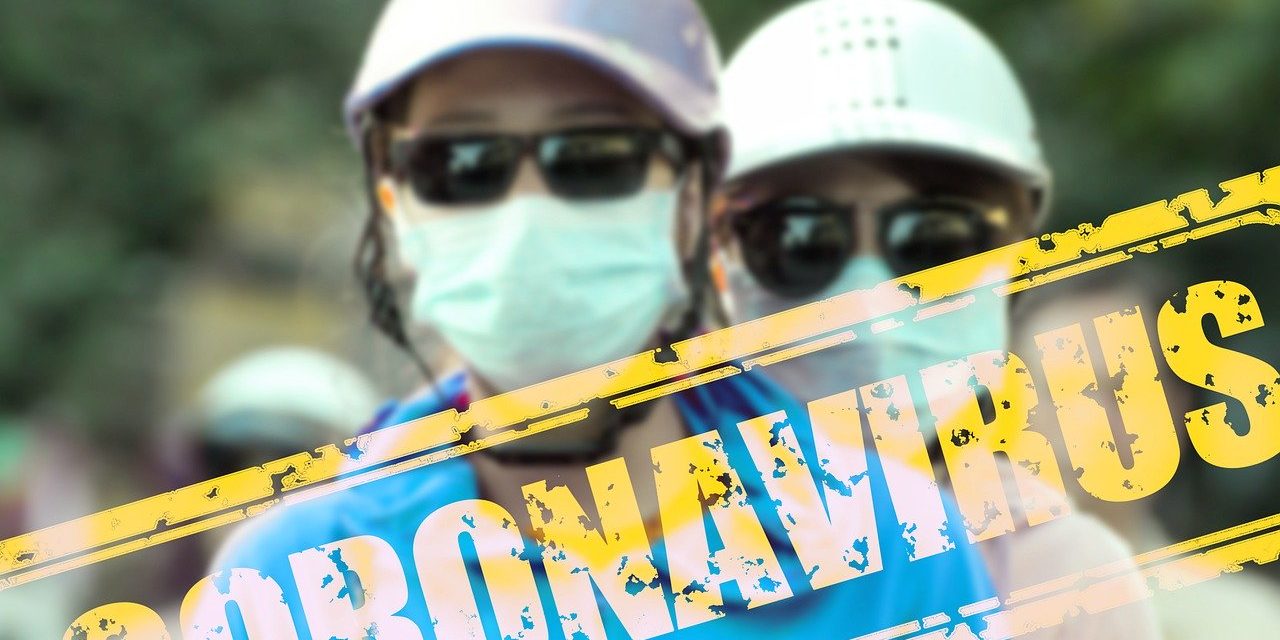Image by Gerd Altmann from Pixabay
While it’s not time to panic over COVID-19, which is caused by the coronavirus, it’s certainly time to plan as it has created havoc worldwide.
It, of course, has prompted a U.S. Agency, the Centers for Disease Control (CDC), to provide advice for employers to deal with the global threat.
Some of the advice is simple common sense, but it’s worth repeating to reduce the risks from this virus.
Stay home
Sick employees should not go to work.
Be especially mindful of employees who have symptoms similar to acute respiratory ailments such cough, fever and shortness of breath. Employees should stay home for at least one day.
Review your sick-leave policies. They should be flexible so employees won’t fear losing their jobs if they stay home.
Because doctors may be swamped from chaos caused by the coronavirus, don’t require a doctor’s release to miss work.
Allow employees to remain home for stricken family members.
Sick at work
If any employees show to work with symptoms similar to respiratory illness, promptly send them home. Send them home also if they appear to become sick at work.
Notify employees of possible exposure to the coronavirus if one of your workers contracts COVID-19.
But confidentiality is important. Don’t tell your staff who is sick as it would violate the Americans with Disabilities Act (ADA).
Absolute cleanliness
Obtain CDC posters that show good hygiene practices. Display them in your workplace.
Employees should be reminded to wash their hands with soap and water regularly for at least 20 seconds. Or they should use alcohol-based hand sanitizers that have a minimum of 60-percent alcohol.
Provide your staff with soap, water, alcohol-based sanitizers, tissues, and no-touch waste baskets.
Also remind them to cover their mouths and noses with a tissue when they cough or sneeze. The tissue should be discarded right away. If no tissue is readily available, they should use an elbow.
Cleaning
From workstations and keyboards to countertops and doorknobs, regularly clean all surfaces in your facility. Continue to use the customary cleaning agents and the recommended directions.
Again, with the alcohol-based sanitizers, tell your employees to wipe all surfaces before they touch them.
Travel
Employees should be reminded to take recommended precautions before they travel. That starts with the CDC’s traveler’s health notices for each specific country.
Employees should be certain they don’t have coronavirus-like symptoms before leaving on trips. If they are sick, they should call their doctor and notify their supervisor right away.
Should they get sick outside the U.S., employees should adhered to your policy for obtaining medical treatment.
That includes seeing a health-care provider or checking with a medical-assistance firm to get the best-possible health-care provider for treatment.
Incidentally, the U.S. Consulate can help with the finding of a health-care service. But the consulate can’t provide other health-related services.
From the Coach’s Corner, editor’s picks:
Coronavirus Prompts Best Strategies for a Remote Workforce – To achieve the most productivity with employees working from home as a result of the coronavirus, the right technology-contingency strategies will prevent disruption in your company’s operations.
5 Pointers to Successfully Fight Flu Season at Work – Flu as well as cold seasons can obviously have an adverse effect on your business operations. Your exposure is enormous – not only from your employees but from their families and your customers.
HR: Effectively Manage ADA Issues in Your Facilities – Disabled persons have had both valid and invalid complaints about the workplace. Such complaints about a lack of inclusion concern your facilities and human resources program. Here are strategies to consider implementing.
If it’s Necessary to Fire Employee on FMLA, Here’s How … – Despite what might you have been told, you can discharge an employee while on leave for cause under the Family and Medical Leave Act. If you feel you must terminate such an employee, here are the guidelines.
Family Friendly Policies: Compliance with Nursing Breaks – Are your family friendly policies up-to-date? For instance, it’s common to accommodate for lactation breaks in the workplace. Here’s what you need to know.
Manage Health Costs by Improving Your Culture 3 Ways — Is your company saddled with high health costs? By improving your culture in three ways to minimize stress, your company will improve performance and long-term sustainability.
“If suffering brings wisdom, I would wish to be less wise.”
-William Butler Yeats
__________






